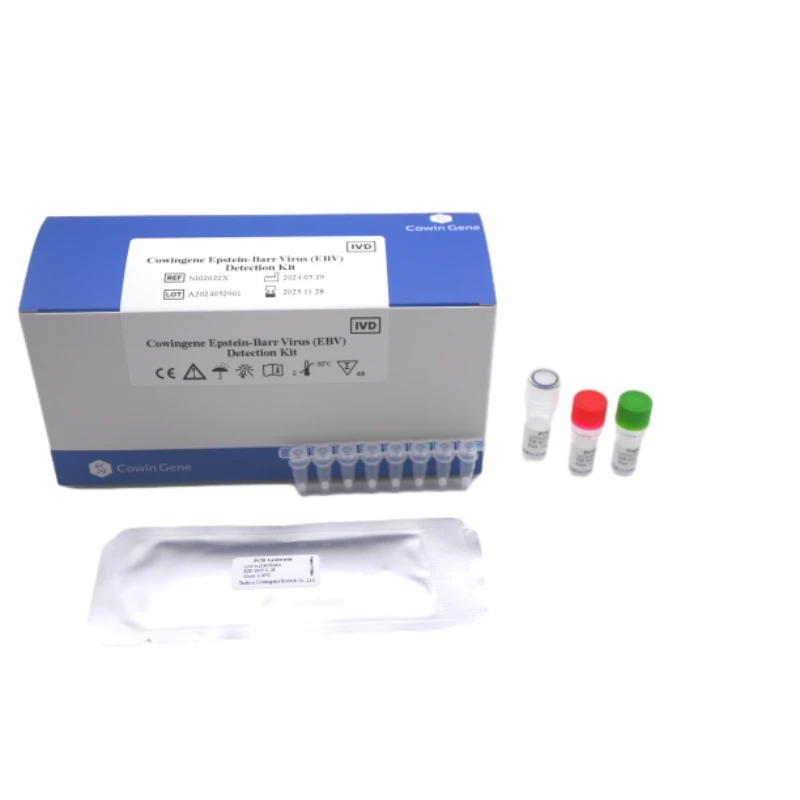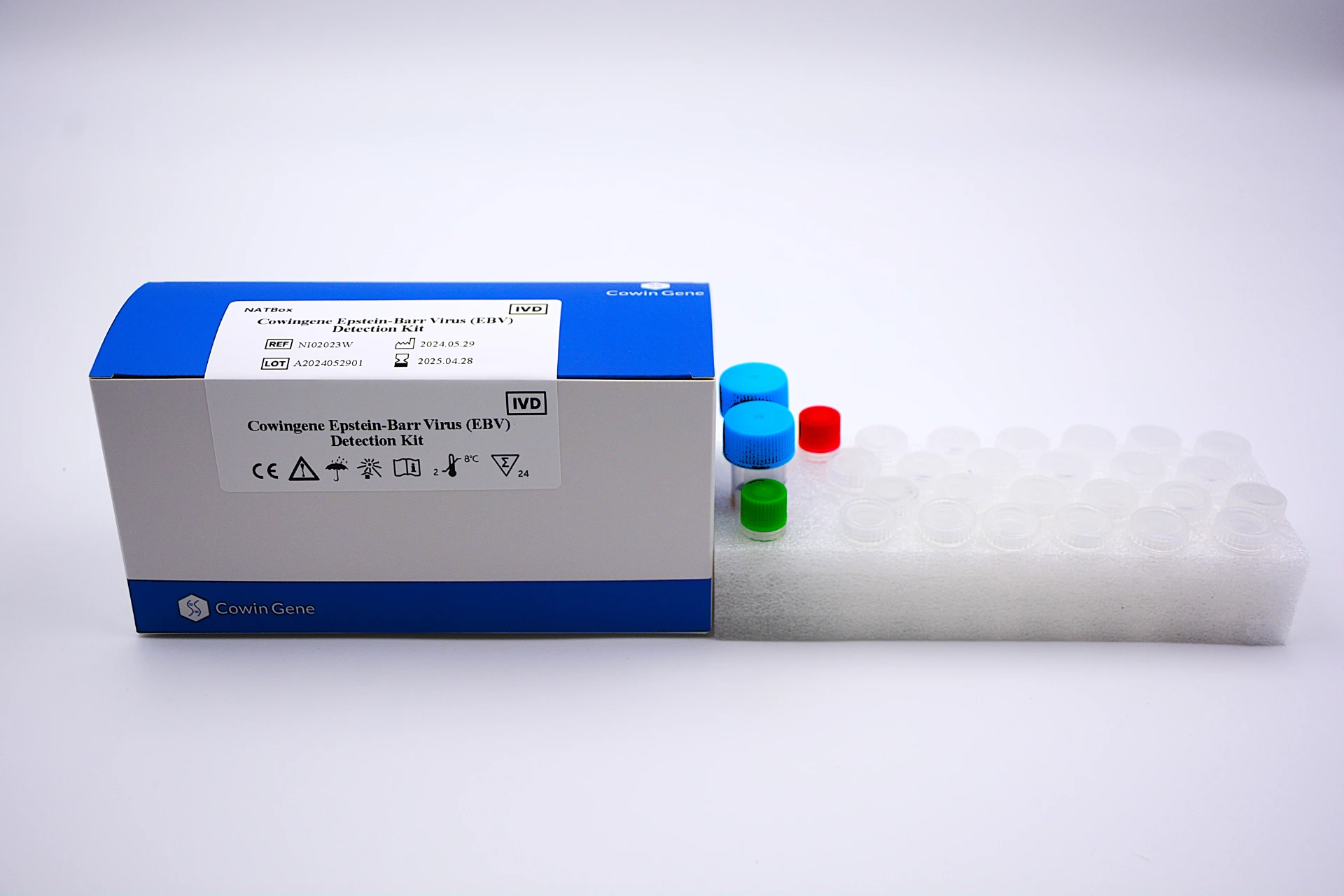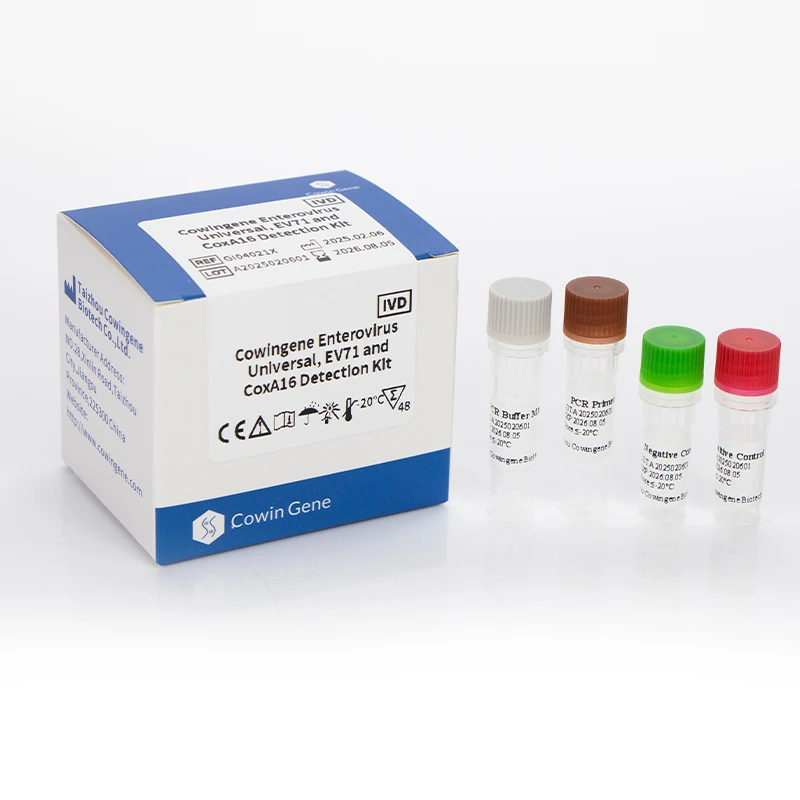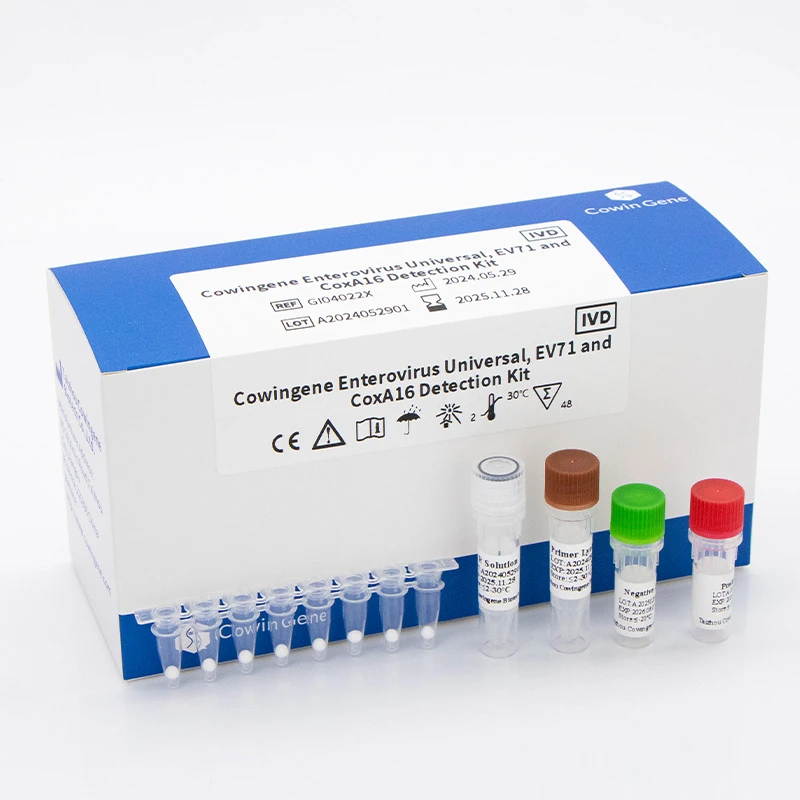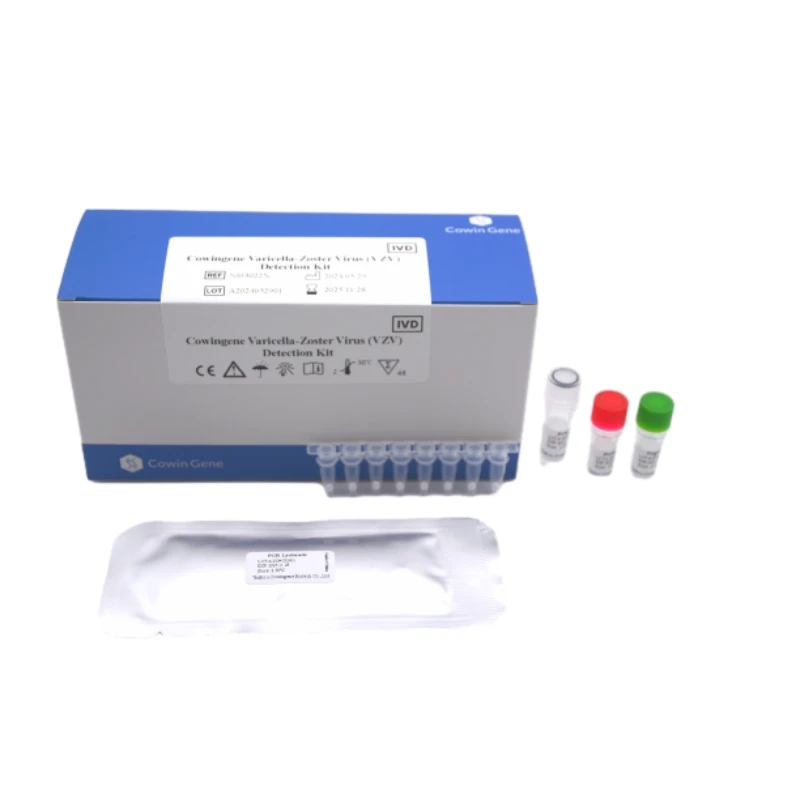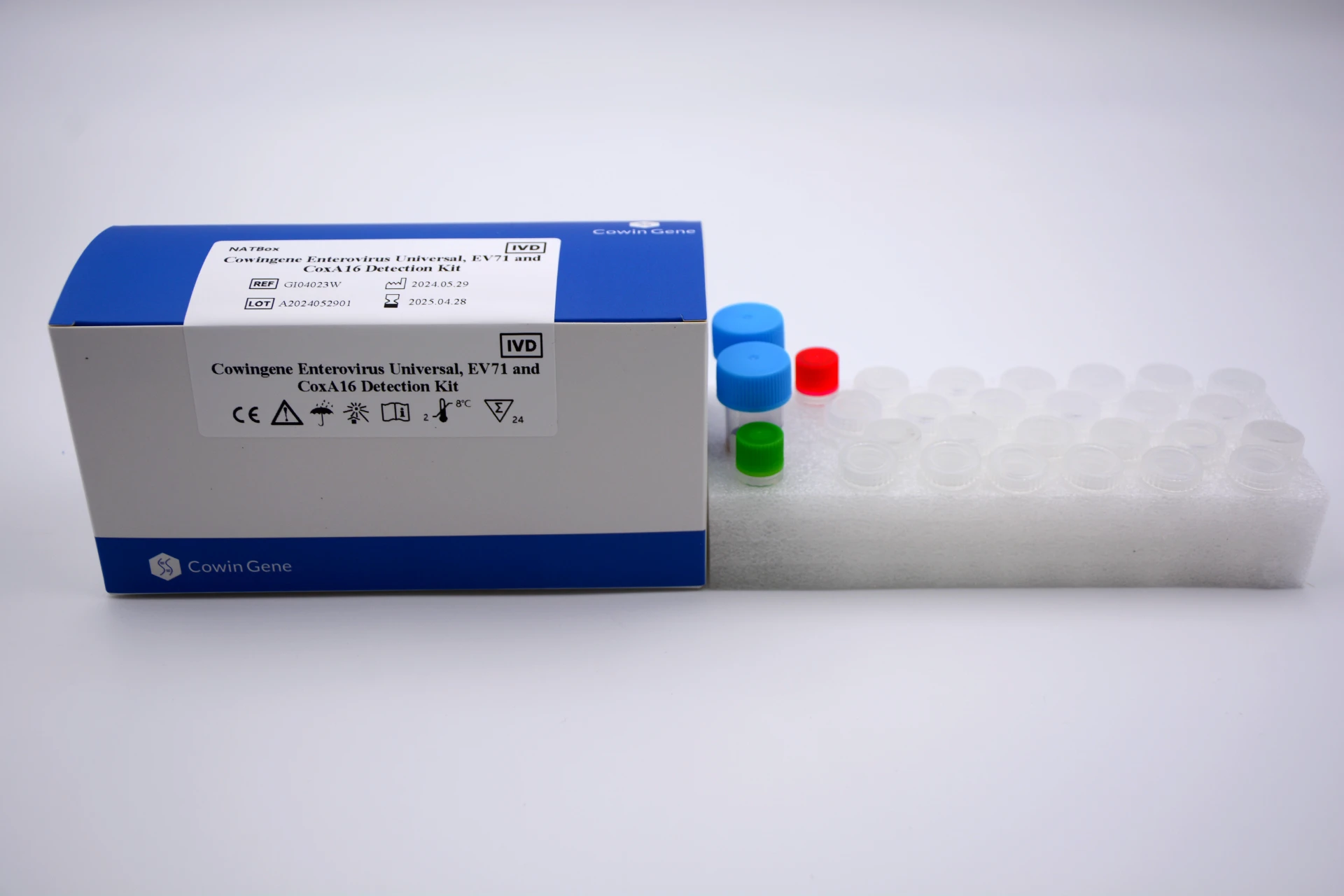Nov . 20, 2025 11:00 Back to list
Group B Strep PCR Test – Rapid and Accurate Detection for Improved Newborn Health
Understanding the Group B Strep PCR Test: Why It Matters Worldwide
Every so often, a diagnostic method quietly shifts the way healthcare deals with a stubborn problem. The group B strep PCR test is exactly one such innovation. This test helps detect Group B Streptococcus (GBS) colonization, particularly in pregnant women, rapidly and accurately. Globally, GBS remains a major concern as it is a leading cause of newborn infections, sometimes leading to serious illness or even death if untreated. That’s why understanding this test doesn’t just matter medically – it has huge implications for public health around the world.
By speeding up diagnosis and reducing uncertainty, the test empowers clinicians to act swiftly, preventing potentially tragic newborn infections. Plus, early detection means antibiotics can be targeted, avoiding unnecessary treatments. In a nutshell, this test is a vital tool that saves lives, reduces costs, and strengthens trust in prenatal care.
The Global Context: How Group B Strep PCR Testing Fits into Worldwide Health Efforts
According to the World Health Organization (WHO), Group B Streptococcus is estimated to colonize 10–30% of pregnant women globally. Without proper screening, around 1 in 2000 newborns risk serious infection from GBS, which could lead to sepsis, pneumonia, or meningitis. In low-resource settings, newborn mortality from GBS is disproportionately high, especially when routine screening and prophylactic antibiotics aren’t widely implemented.
One of the main challenges is that traditional culture methods to detect GBS can take up to 48 hours, making timely intervention difficult. This delay becomes critical in emergency delivery situations or in regions with limited lab infrastructure.
Here, the group B strep PCR test steps in. It’s a molecular method offering results often within 1–2 hours, helping clinicians decide on appropriate treatment without losing precious time. As UN data pushes for improved maternal and child health globally, such rapid diagnostics are becoming more necessary than ever.
What Exactly Is the Group B Strep PCR Test?
Imagine you’re searching for a specific “bad guy” in a huge crowd. The PCR test – polymerase chain reaction – is like giving the lab a magnifying glass that zooms in on GBS DNA strands, multiplying them until they’re easy to spot. Unlike traditional culture, which grows bacteria over time, PCR detects GBS by amplifying its genetic material directly from vaginal or rectal swabs.
This test’s strength lies in its speed and sensitivity. It identifies even small amounts of GBS, which means fewer false negatives and more confident diagnosis. Clinically, this helps guide the administration of intrapartum antibiotics during labor, reducing newborn exposure to harmful infection.
Main Components of Group B Strep PCR Testing
1. Sensitivity and Specificity
Tests vary, but many PCR-based assays boast sensitivity and specificity rates above 95%. That’s key because a missed GBS colonization can be disastrous, while false positives might lead to unnecessary antibiotics. Modern PCR tests strike a balance here.
2. Turnaround Time
One of the biggest perks is rapid turnaround. Some platforms deliver results in just 30–90 minutes – perfect for labor wards where timing is tight. This speed is a game-changer compared to culture methods taking days.
3. Sample Type and Collection
Samples are usually vaginal and rectal swabs taken late in pregnancy. Proper collection affects test accuracy. Training healthcare workers on this step remains crucial.
4. Equipment and Costs
PCR testing requires specialized equipment and reagents, so initial investment is higher than culture methods. But many argue long-term savings in treatment costs and better neonatal outcomes offset this.
5. Integration with Clinical Protocols
The test works best when paired with clear clinical guidelines on antibiotic administration, ensuring timely, targeted intervention.
Mini takeaway: PCR-based testing for GBS is becoming the gold standard due to its accuracy and speed, though implementation still depends on resources and training.
Where the Group B Strep PCR Test Makes a Real Difference
The test is widely applied in developed countries’ prenatal healthcare systems, especially in the US and parts of Europe, where screening policies often mandate PCR use. In places like these, it reduces GBS-related newborn infections dramatically.
Emerging economies – for example, Brazil, India, and South Africa – are evaluating PCR adoption given their high birth rates and GBS burden but face challenges around cost and infrastructure.
Hospitals and birthing centers benefit most. Plus, humanitarian healthcare organizations look to rapid PCR testing during crisis response where culture isn’t feasible — refugee camps or disaster zones, for instance. It’s a vital tool for safeguarding newborns in disruptive environments.
Typical Product Specifications of a Group B Strep PCR Testing Kit
| Specification | Typical Value |
|---|---|
| Sample Type | Vaginal and rectal swabs |
| Test Method | Real-time PCR amplification |
| Turnaround Time | 30 to 90 minutes |
| Sensitivity | ≥ 95% |
| Specificity | ≥ 95% |
| Equipment Required | PCR Thermal cycler, reagents |
| Regulatory Certifications | FDA, CE Mark |
Comparing Top Vendors of Group B Strep PCR Tests
| Vendor | Turnaround Time | Sensitivity | Cost per Test | Notable Features |
|---|---|---|---|---|
| BioDx Solutions | 45 mins | 97% | $35 | Portable device, minimal hands-on time |
| GeneClear Inc. | 60 mins | 95% | $30 | Automated sample prep, cloud data integration |
| Precision Labs | 90 mins | 98% | $40 | High throughput option for hospitals |
Advantages and Lasting Benefits of the Group B Strep PCR Test
Beyond the obvious – rapid, accurate detection – this test brings several important benefits that ripple out:
- Cost Efficiency: Though the upfront cost is higher, fewer complications and targeted antibiotics reduce overall healthcare expenses.
- Improved Patient Safety: Less exposure to unnecessary antibiotics means fewer resistant bacteria and adverse reactions.
- Emotional Relief: For expecting parents, knowing the test has been done properly gives peace of mind.
- Public Health Impact: Widespread screening lowers GBS infection rates newborns globally, aligning with UN child health goals.
In short, it’s a classic win-win scenario: better clinical outcomes plus social benefits.
Emerging Trends in Group B Strep PCR Testing
Looking ahead, PCR diagnostics continue to evolve:
- Point-of-care miniaturization: Devices are getting smaller and more user-friendly, moving testing closer to bedside or even home environments.
- Integration with digital health: Test data connected to electronic medical records streamline care coordination and statistics gathering.
- Multiplex assays: Tests that detect GBS along with other perinatal pathogens simultaneously are in development.
- Eco-conscious design: Efforts to reduce plastic use and energy consumption during the testing process reflect broader sustainability goals.
Common Challenges and How the Industry Is Tackling Them
Despite all the promise, the rollout of group B strep PCR testing faces hurdles:
- Cost barrier: Many clinics in low-resource areas can’t yet afford machines or kits.
- Training needs: Proper sample collection and interpretation require skilled personnel.
- Regulatory variation: Different countries have distinct approval processes, complicating distribution.
Innovative solutions like mobile labs, low-cost PCR units, and international partnerships are steadily closing these gaps.
FAQ about Group B Strep PCR Testing
- How quickly can group B strep PCR test results be obtained during labor?
- Most rapid PCR tests provide results within 30 to 90 minutes, allowing healthcare professionals to quickly decide on antibiotic administration.
- Is the group B strep PCR test more reliable than traditional culture methods?
- Yes, PCR tests generally offer higher sensitivity and faster results, detecting even low levels of bacteria that cultures might miss.
- Can this test be used in low-resource settings?
- While the technology requires specialized equipment, newer portable and low-cost PCR platforms are increasingly enabling testing in less-equipped healthcare facilities.
- Does the group B strep PCR test require special sample handling?
- Samples must be collected properly, usually from vaginal and rectal swabs shortly before delivery, and handled according to kit instructions to ensure accuracy.
- Where can I learn more about implementing group B strep PCR testing protocols?
- Consult obstetric and infectious disease guidelines from reputable organizations like the CDC or WHO, and check out resources such as group b strep pcr test offers for clinical support.
Wrapping Up: The Lasting Impact of Group B Strep PCR Testing
In the journey to reduce newborn infections globally, the group B strep PCR test stands as a highly effective, evidence-backed tool. Its rapid, sensitive detection capability supports informed clinical decisions, improves outcomes, and aligns with global health priorities. Expanding access, continuing technological improvements, and clear protocols will only make this test more indispensable.
Want to learn more? Visit our website at https://www.cowingene.com for detailed insights and solutions.
References:
Related PRODUCTS
-
Comprehensive Guide to Monkey Pox Detection: Methods, Applications & Innovations
NewsNov.23,2025 -
Essential Guide to Monkeypox Detection: Technologies, Applications & Future Trends
NewsNov.23,2025 -
Understanding Strep B Test Cost: Global Insights and Healthcare Impact
NewsNov.22,2025 -
Group B Strep DNA Test – Fast, Accurate Screening to Prevent Neonatal Infection
NewsNov.21,2025 -
Essential Guide to Group B Strep Test Kits: Benefits, Uses & Innovations
NewsNov.20,2025


